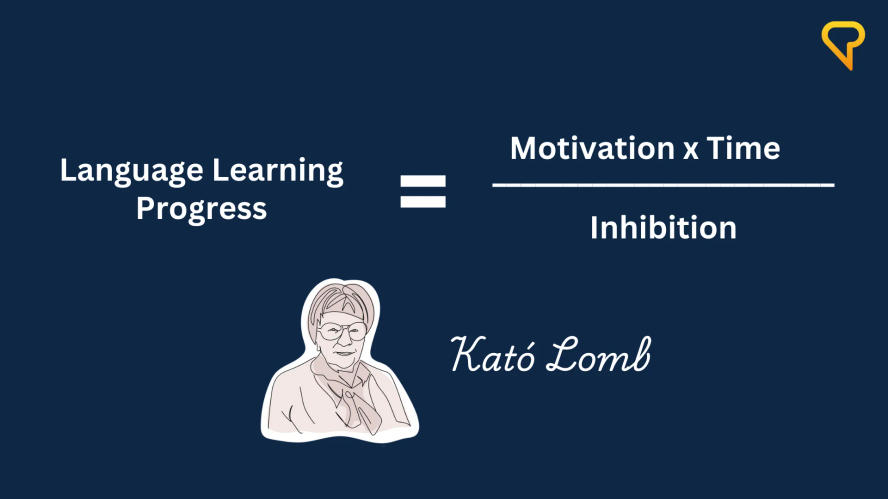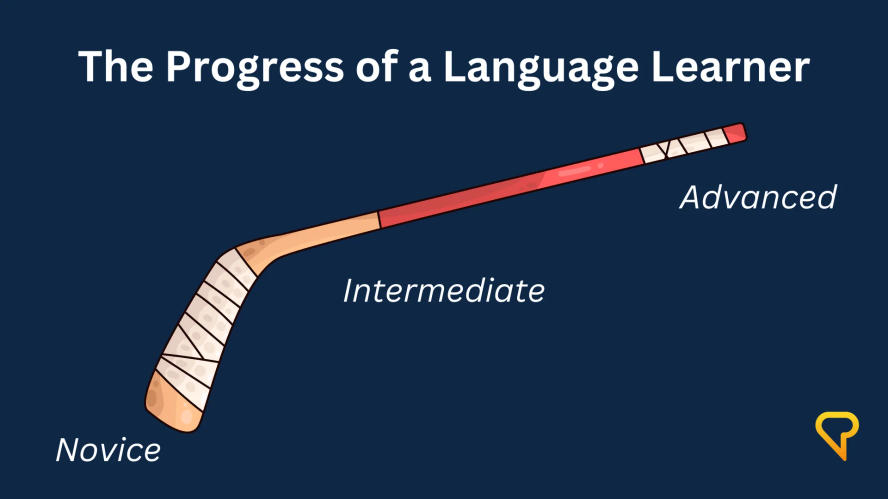What Is A Polyglot? A polyglot is an individual with the remarkable ability to understand and use multiple languages, enriching their lives and opening doors to diverse cultures. At WHAT.EDU.VN, we believe everyone can explore the world of languages and discover the joy of multilingualism, unlocking a world of opportunities. Explore language acquisition, language mastery, and multilingual skills.
1. Understanding the Core of Polyglottery: Varying Definitions
The concept of being a polyglot is multifaceted, with different people holding varying interpretations of what it truly means. Just as Leo Tolstoy wrote in Anna Karenina, “All happy families resemble each other, each unhappy family is unhappy in its own way.” With language learning, while frustrations may be similar, the path to happiness and success diverges significantly among learners. Some may find satisfaction in academic understanding, while others may seek to connect with diverse cultures.
1.1 The Spectrum of Polyglot Definitions
- Classic Definition: Someone who speaks multiple languages fluently.
- Broader Definition: Someone who knows and can use several languages to varying degrees.
- Practical Definition: Someone who can communicate effectively in multiple languages, regardless of fluency level.
1.2 The Silent Polyglot: Knowledge Beyond Speaking
Consider a person who can read and understand numerous languages but cannot speak them due to a physical condition. Are they a polyglot? The answer, surprisingly, can be yes. This example challenges the notion that speaking is the only measure of polyglottery. Instead, it highlights the ability to comprehend and communicate, even if only through written language.
2. The Individual Journey of Language Learning
The journey of language learning is profoundly personal. The source of joy and motivation differs from person to person. One individual may be an avid reader, while another masters the art of social banter. The languages you choose to learn and the proficiency you achieve in each can be a reflection of your unique interests and goals.
2.1 Defining Polyglot According to Experts
According to the Oxford Advanced Learner’s Dictionary, a polyglot is defined as someone who “knows” and is able to “use” several languages. This definition is intentionally broad, acknowledging that the level of proficiency can vary.
2.2 The “Many Tongues” Perspective
The etymology of the word “polyglot” comes from the Greek term “many tongues,” which implies that speaking is a component. However, this highlights the definition’s ambiguity, as proficiency can take many forms.
3. Language Fluency: A State of Flux
Fluency in a language is not a static achievement. It ebbs and flows depending on usage and practice. Even the most skilled polyglots need to refresh their knowledge periodically to maintain their proficiency.
3.1 Romanian Language Skills: A Personal Example
Consider an individual who dedicated time and effort to learning Romanian for a business trip. After two months of focused study, they could converse with locals, understand cultural nuances, and even impress the town mayor. However, a year later, without consistent practice, much of that fluency was lost. This experience illustrates how quickly language skills can fade if not maintained.
3.2 The Need for Refreshing: Lessons from Kató Lomb
Kató Lomb, a renowned polyglot, admitted that she needed to prepare before using certain languages, even after mastering them. She had a core set of languages she could use readily, but others required a bit of refreshing. This underscores the importance of continuous engagement with languages to retain proficiency.
4. Embracing the Wisdom of Kató Lomb
Kató Lomb, a self-taught polyglot during a time without modern technology, provides valuable insights into language learning. Her method involved working with novels and dictionaries in the target language. She emphasized the importance of not getting bogged down by rare expressions, trusting that essential vocabulary would reappear over time.
4.1 Kató Lomb’s Language Learning Equation
Lomb simplified language learning with the equation:
Language Learning = (Motivation + Time) / InhibitionThis means maximizing your motivation and time spent with the language while minimizing any inhibitions or fear of making mistakes.
4.2 Key Takeaways from Kató Lomb’s Approach
- Focus on Enjoyment: Choose learning materials and methods that you find enjoyable.
- Be Persistent: Dedicate consistent time to language study.
- Overcome Inhibition: Don’t be afraid to make mistakes. Embrace them as learning opportunities.
5. Advice for Aspiring Polyglots: A Practical Guide
Becoming a polyglot is a journey that requires dedication, strategy, and the right mindset. Here’s some practical advice to help you on your path.
5.1 The Upside Down Hockey Stick Metaphor
The progress of a language learner often follows an “inverted hockey stick” pattern.
- Initial Steep Progress: You learn new words quickly, and it’s exciting to go from knowing nothing to understanding and speaking.
- Plateau Phase: After a few months, progress slows. You struggle with many words, and comprehension feels just out of reach.
- Breakthrough: Once you reach this point, you can access and enjoy more interesting material, pushing your skills forward.
5.2 Actionable Strategies for Language Learning
- Set Realistic Goals: Start with achievable goals and gradually increase the difficulty.
- Immerse Yourself: Surround yourself with the language as much as possible through music, movies, and books.
- Find a Language Partner: Practice speaking with a native speaker or fellow learner.
- Use Language Learning Apps: Supplement your learning with apps like Duolingo, Babbel, or Memrise.
- Don’t Be Afraid to Make Mistakes: Embrace mistakes as learning opportunities.
- Stay Consistent: Dedicate time to language learning every day, even if it’s just for 15-20 minutes.
- Reward Yourself: Celebrate your progress and milestones to stay motivated.
6. Defining Your Polyglot Path
Not every language learner follows the same path. Some thrive on early speaking practice, while others prefer to immerse themselves in listening and reading before engaging in conversation.
6.1 Tailoring Your Learning to Your Preferences
- Speaking-Focused: If you enjoy speaking, focus on conversational practice from the beginning.
- Immersion-Focused: If you prefer to listen and read, immerse yourself in authentic content before speaking.
6.2 The Importance of Input
Whether you prefer to speak early or focus on input first, remember that language learning is an individual journey. The key is rich input, which leads to rich output. Find what excites you and build your learning around that.
7. Types of Polyglots: A Comprehensive Overview
The journey to becoming a polyglot is as diverse as the individuals who undertake it. Different people may prioritize different skills, leading to a variety of “types” of polyglots. Here are some of the most common:
| Type of Polyglot | Characteristics | Strengths | Weaknesses |
|---|---|---|---|
| The Fluent Speaker | Focuses on speaking and conversational skills. | Excellent communication skills, able to engage in natural conversations. | May struggle with reading and writing, limited vocabulary. |
| The Voracious Reader | Prioritizes reading and comprehension. | Wide vocabulary, deep understanding of grammar and sentence structure. | May struggle with pronunciation and speaking fluency. |
| The Writing Whiz | Excels at writing in multiple languages. | Strong grasp of grammar, able to produce clear and coherent written texts. | May struggle with spontaneous conversation and listening comprehension. |
| The Listening Ace | Has a knack for understanding spoken language. | Excellent comprehension skills, able to follow complex conversations. | May struggle with speaking and writing, limited vocabulary. |
| The Grammar Guru | Possesses a deep understanding of grammatical rules and structures. | Able to analyze and understand the nuances of language. | May struggle with practical application and conversational fluency. |
| The Cultural Chameleon | Not only speaks multiple languages but also understands the cultures behind them. | Able to navigate different cultural contexts with ease. | May not have the same level of fluency as other types of polyglots. |
| The Hybrid Polyglot | A combination of different types, with a balanced skill set. | Well-rounded language skills, able to communicate effectively in various contexts. | May not excel in any one area as much as specialized polyglots. |
| The Passive Polyglot | Can understand a language but not speak or write it fluently. | Able to access information and media in multiple languages. | Limited in their ability to actively communicate with others. |




7.1 Choosing Your Path
Ultimately, the type of polyglot you become depends on your personal goals and preferences. There’s no right or wrong way to approach language learning. The most important thing is to find a method that works for you and that keeps you motivated.
8. Common Myths About Polyglots: Debunked
There are many misconceptions about polyglots and language learning in general. Let’s debunk some of the most common myths:
| Myth | Reality |
|---|---|
| You need to be a genius to be a polyglot. | Language learning is a skill that can be developed with dedication and effort. |
| You need to start learning languages as a child. | While it’s true that children have an advantage in language acquisition, adults can also become fluent in multiple languages. |
| You need to live in a foreign country to learn a language. | While immersion can be helpful, it’s not necessary. You can learn a language from anywhere with the right resources and motivation. |
| You need to be fluent in a language before you can start using it. | You can start using a language from day one, even if you only know a few words. The more you use it, the faster you’ll improve. |
| You need to have a “language gene.” | There’s no such thing as a “language gene.” Some people may have a natural aptitude for languages, but anyone can learn with enough effort. |
| Once you learn a language, you’ll never forget it. | Language skills fade over time if they’re not used. It’s important to continue practicing and reviewing to maintain fluency. |
| You need to be perfect to be a polyglot. | Nobody is perfect in any language, even their native tongue. The goal is to communicate effectively, not to achieve perfection. |
| You can only learn one language at a time. | While it’s generally easier to focus on one language at a time, it’s possible to learn multiple languages simultaneously with the right approach. |
8.1 Embracing the Reality of Language Learning
The reality of language learning is that it’s a challenging but rewarding journey. It requires dedication, effort, and a willingness to make mistakes. But with the right mindset and approach, anyone can become a polyglot.
9. The Benefits of Becoming a Polyglot
Learning multiple languages offers a multitude of benefits that extend far beyond the ability to communicate with more people. Here are some of the most significant advantages:
| Benefit | Description |
|---|---|
| Enhanced Cognitive Abilities | Studies have shown that learning multiple languages can improve cognitive functions such as memory, problem-solving skills, and multitasking abilities. |
| Improved Communication Skills | Learning a new language can make you a better communicator in general. You’ll become more aware of the nuances of language and more sensitive to different communication styles. |
| Increased Cultural Awareness | Language and culture are intertwined. Learning a new language can open your eyes to a new culture and help you understand different perspectives and ways of life. |
| Expanded Career Opportunities | In today’s globalized world, multilingualism is a valuable asset in the job market. Knowing multiple languages can open doors to a wider range of career opportunities and make you more competitive. |
| Enhanced Travel Experiences | Knowing the local language can greatly enhance your travel experiences. You’ll be able to connect with locals on a deeper level, navigate unfamiliar situations with ease, and gain a more authentic understanding of the culture. |
| Improved Self-Confidence | Learning a new language can be a challenging but rewarding experience. Overcoming this challenge can boost your self-confidence and make you feel more capable. |
| Increased Creativity | Studies have shown that multilingualism can enhance creativity and divergent thinking. |
| Delaying the Onset of Dementia | Research suggests that learning multiple languages may help delay the onset of dementia and other age-related cognitive decline. |
| Personal Enrichment | Learning a new language can be a deeply enriching experience. It can broaden your horizons, challenge your perspectives, and connect you with people and cultures from around the world. |
9.1 Embracing the Polyglot Lifestyle
Becoming a polyglot is more than just learning a new language; it’s embracing a lifestyle of continuous learning, cultural exploration, and personal growth.
10. What Is A Polyglot? A Final Definition
What is a polyglot? In the end, there is no single definition of a polyglot. We can be silent polyglots, talkative polyglots who don’t read, etc. We can be any kind of polyglot we want. The main thing is to engage with the languages, enjoy the process, and keep on discovering.
Discover the joy of language learning at WHAT.EDU.VN, where we provide the resources and support you need to achieve your language goals. Whether you’re just starting out or looking to enhance your existing skills, our platform offers a wide range of tools and resources to help you succeed.
10.1 Unlock Your Potential
Ready to start your language learning journey? Visit WHAT.EDU.VN today and discover a world of opportunities. Our free resources and expert guidance will help you unlock your potential and achieve your language goals.
10.2 Have Questions? Get Answers at WHAT.EDU.VN
Do you have questions about language learning or any other topic? At WHAT.EDU.VN, we provide a free platform for asking questions and getting answers from a community of knowledgeable experts.
Unlock a World of Knowledge at WHAT.EDU.VN
At WHAT.EDU.VN, we understand the challenges of finding reliable and accessible information. That’s why we’ve created a platform where you can ask any question and receive accurate, helpful answers from our community of experts. Whether you’re a student, a professional, or simply curious about the world around you, WHAT.EDU.VN is your go-to resource for all your information needs.
Need Answers? Ask Away at WHAT.EDU.VN
Don’t waste time searching through endless websites and forums. At WHAT.EDU.VN, you can get the answers you need quickly and easily. Our community of experts is ready to help you with any question, big or small.
Get Free Answers Now
Visit WHAT.EDU.VN today and start asking your questions. Our services are completely free, and we’re committed to providing you with the best possible information.
Contact Us:
- Address: 888 Question City Plaza, Seattle, WA 98101, United States
- WhatsApp: +1 (206) 555-7890
- Website: WHAT.EDU.VN
Join us at what.edu.vn and experience the convenience of having a world of knowledge at your fingertips. Ask your questions today and let our community of experts guide you on your learning journey.
